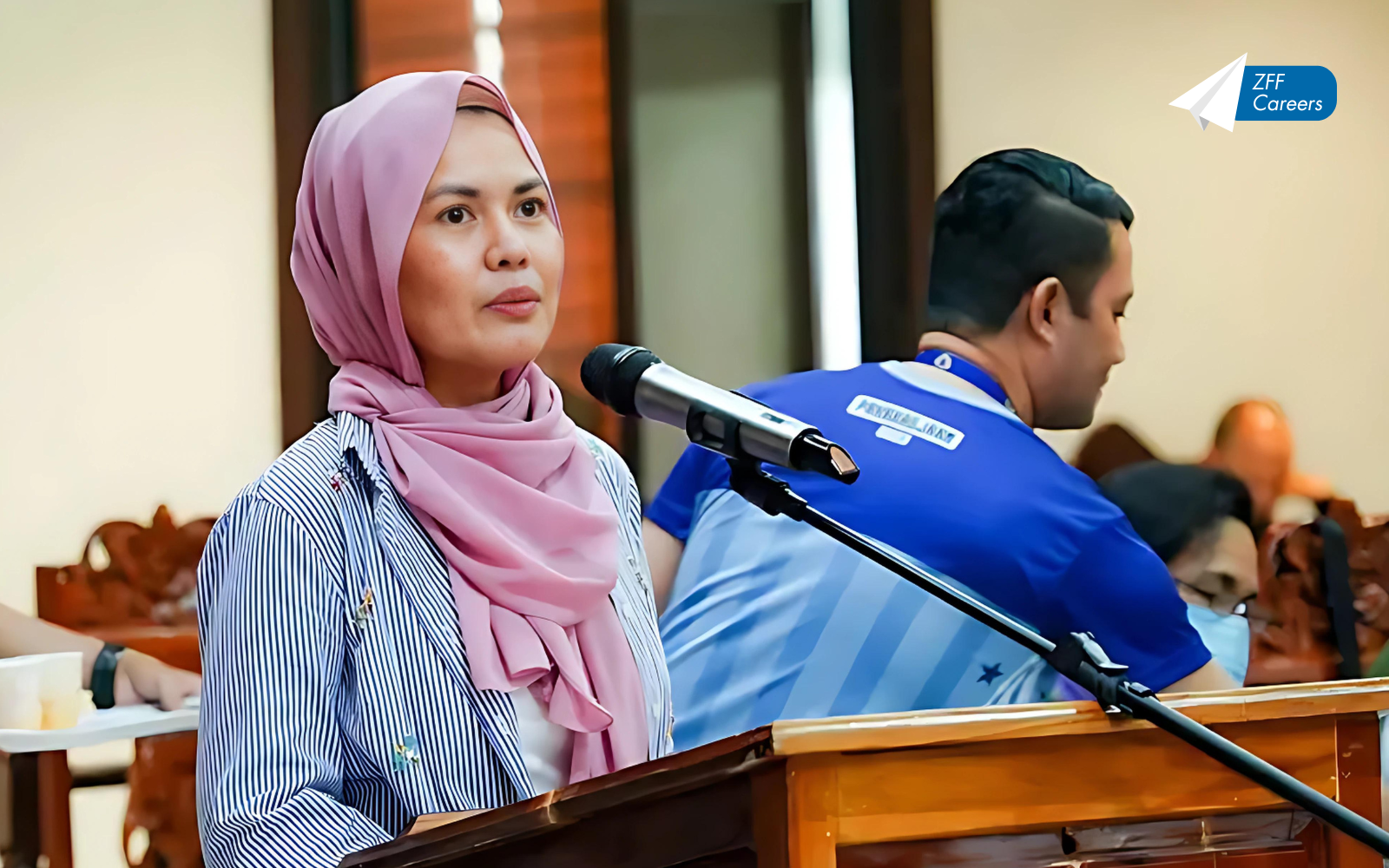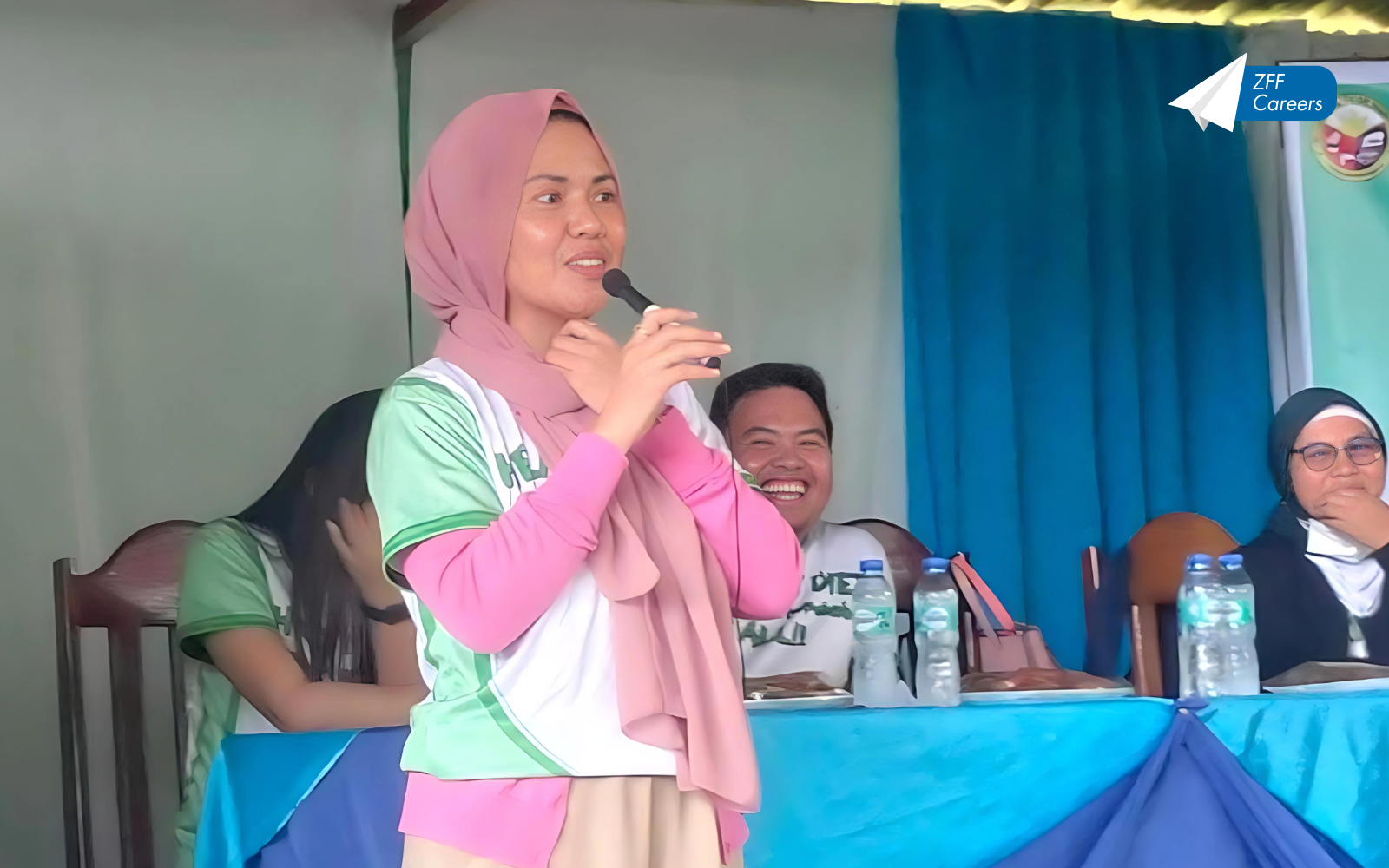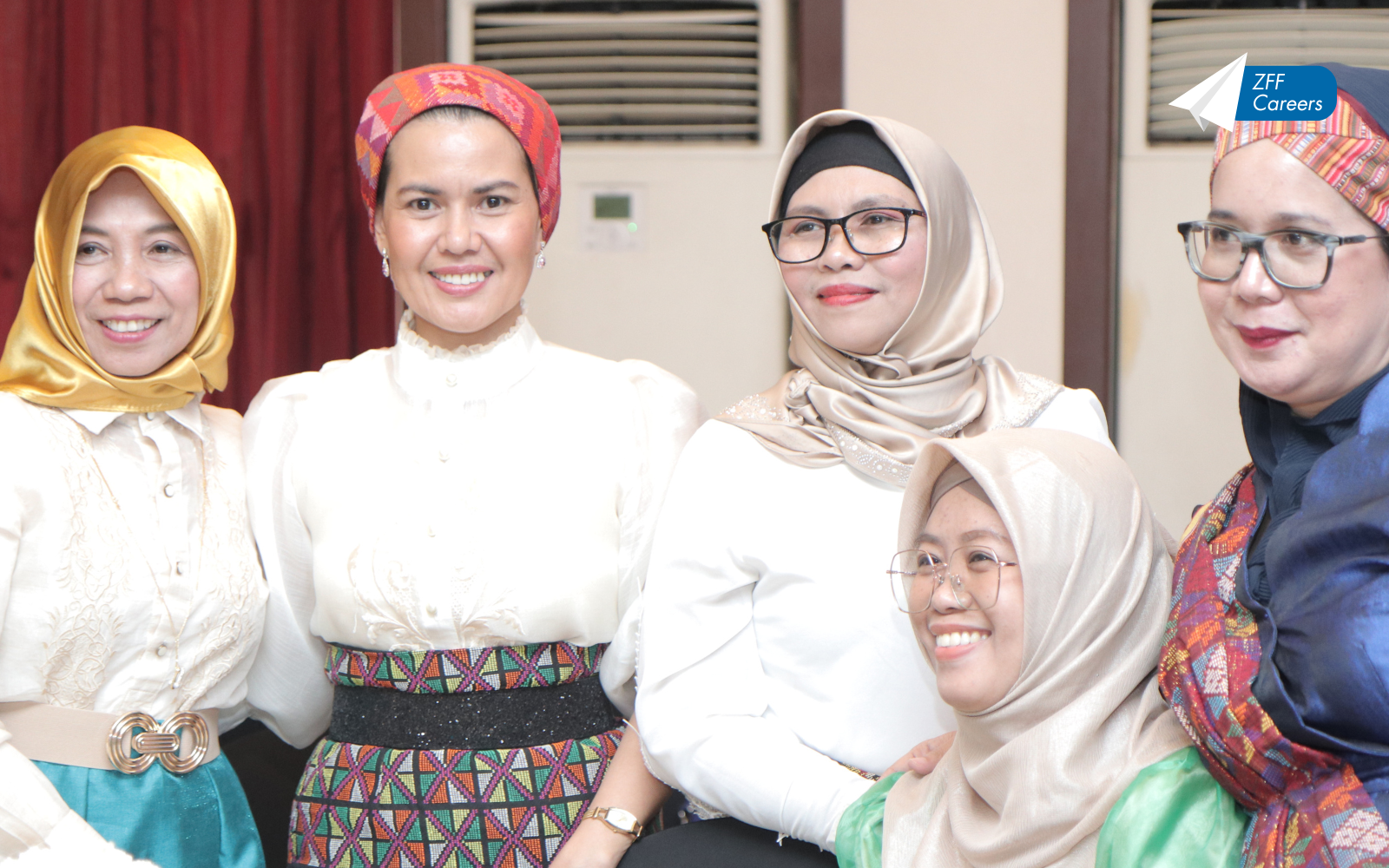A good way to spend life: Jennifer Nandu

A good way to spend life
If there is one thing most important for Jennifer Nandu, it is undoubtedly her family. She grew up in a family who has shown her what it means to love and be loved, to endure and rise above challenges.
Jeni is the fruit of a love that defied all odds. Her parents were high school sweethearts. At the age of 19 and 21, they were already engaged, but a family dispute cut short the engagement. Instead of being disheartened, Jeni’s father grew more eager to prove that his love cannot easily be shaken. The two eloped and sought refuge in the man’s grand aunt, Princess Tarhata Kiram, a Sultanate royalty, who later shielded them from accusations that Jeni’s mother was kidnapped by her father. The two eventually got married. This story never gets old for Jeni. She knew that her parents worked hard to show everyone that they made the right decision, and she carried that same responsibility as their firstborn.
Royal blood runs in Jeni’s family, but she admitted that they were no exception to discrimination because of their religion. When she moved to a Christian-dominated city in Zamboanga del Sur, “I felt like a stranger. Iba ang perception nila sa Muslims in the 1980s. They called me a barbarian.” It was a painful childhood memory, but Jeni chose to learn the lesson and forget the heartache. This experience later influenced her to empathize with minority groups—something that has proven beneficial to the path she has chosen.
Obedience, experience, affirmation
Jeni once dreamed of becoming a teacher like her parents, but they encouraged her to take up medicine saying that it would be the best way for her to help other people. “Kahit ayaw ko mag-nurse, I took up nursing para masunod ko ang pangarap sa akin ng mga magulang ko na maging doktor eventually.” She made peace with it because though her parents were gainfully employed, it was not enough to send her to medical school.
Time quickly passed by, and before she knew it, Jeni began working. During a poverty alleviation program, Jeni was assigned to a far-flung area where running water and electricity were unavailable. She could have asked her father to use his connections so she can be reassigned to Jolo, the provincial capital, but Jeni embraced the experience knowing that nurses like herself are much more needed in places like that. The realities she witnessed validated the advocacy she developed as a public nurse. “Sabi sa akin ng tatay ko, para doon ang programa, para matulungan ang communities na walang health workers. True enough, ako lang ang health worker doon,” Jeni recalled.
Jeni was expected to look after school children, but she did more than that. Being the only health worker in the area, Jeni was on call 24/7 and would sometimes assist mothers in childbirth. It was a geographically isolated and disadvantaged area. Transporting patients was a challenge. They had no resources and adequate equipment. “How can I refer a patient to a hospital?” There was not much of a choice for her but to just do what she can and hope that no one would die on her watch.
At some point of her life, Jeni considered fulfilling another childhood dream—to be a lawyer. However, an opportunity to pursue higher studies in health social science knocked on her door. Again, it was an experience that affirmed her calling.
Carrying all the memories she had from her first job, Jeni realized that more than a biomedical field, healthcare is largely a cultural and socio-economic field. That moment, it became clear to her that she was meant for this career. She was meant to serve. Her parents were right after all.

On passion and loss
Jeni’s first experience in development work was with Save the Children (for a United States Agency for International Development program in Sulu). “In my 20s, I felt that I had the best job in the world.” All the sweat and tears were worth it knowing that their work was valued and seeing that barangay health workers were empowered to help others. Jeni loved humanitarian and development work.
Everything was going well for Jeni until she experienced one great loss after another. She slowly lost her motivation. The once driven woman found herself unenthused. She transferred from one organization to the next, but she knew something was missing. She could not give her best the way she used to. “I was not able to process the grief. Ang feeling ko noon, we were not giving the relevant work that people really need. Parang it occurred to me na puro numbers lang ang dinedeliver namin. Naiintindihan ba namin ang needs talaga ng community?” She lost her sense of fulfillment.
At her lowest, Jeni prayed for guidance and clarity. “Pinagdasal ko na maramdaram ko ulit ang drive and usefulness ko.” Jeni is a living testimony that God is not deaf.
Answered prayer
Jeni knew that her prayer was answered through the work she found in Zuellig Family Foundation (ZFF) in 2014. There had been highs and lows during her stay in the Foundation, and the work gets overwhelming at times. But whenever she feels tired, Jeni looks back to the prayers she uttered. “Lagi kong iniisip na pinagdasal ko ang trabaho na ito. Pahalagahan mo. Hindi tayo mayaman na bansa. Maraming limited lang ang access to healthcare. Kailangang may gawin para yung mga naiiwan ay hindi tuluyang maiwan. I’m in an organization where I feel that I make a difference,” Jeni further said.
She also knows that in making that difference, she is never alone. Jeni witnessed how ZFF takes care of its staff and equips them before sending them out. ZFF sees the staff not as mere workers but as human beings with so much potential, and the organization helps them develop themselves so they can help disadvantaged people in return. In her seven-year stay in ZFF, Jen witnessed tremendous transformations for the people. She is serving the community like what her parents have always encouraged her to do.
The work she does is also close to her heart. Her paternal grandmother suffered malaria. Healthcare was beyond their reach that time. Her maternal grandmother died of childbirth when her mom was just 15. “Hanggang ngayon sinasabi ng nanay ko how she missed her mom everyday of her life. Hindi ko na kayang ibalik ang nanay niya sa kanya, but maybe through the work that I do, ma-prevent pa na magkaroon ng tulad ng nanay ko who lost their moms early in life,” Jeni emotionally recalled.
Everything slowly made sense to Jeni. “Sabi ko sa parents ko, sorry hindi ako naging doktor pero I think mas marami akong natutulungan ngayon.”
Jeni shared that a person may have all perfect plans in the world, but only God knows what is best. She lost herself sometime, somewhere, but she was led to an organization that reminded her that she is on the right path. Faith was her weapon. No matter where she goes, Jeni always cherishes the moment she prayed for the job she now enjoys. “Working in ZFF is a good way to spend my life,” Jeni ended.
